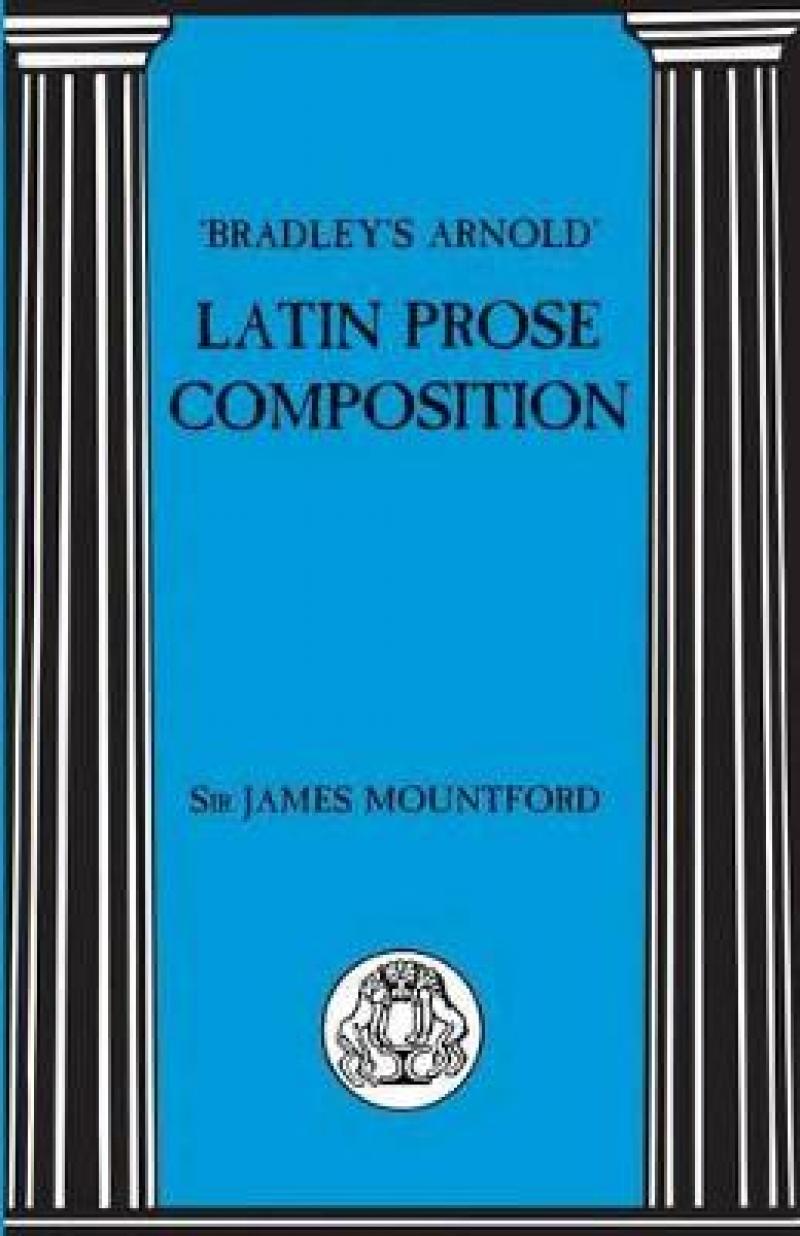This frequently reprinted volume is the 'sine qua non' for all who would attempt to write faultless classical Latin Prose. It is impressively detailed in explaining syntactical nuances, in its exemplification and in the range of its exercises (sentences and continuous proses) than any other successive prose composition text books.
The original version by Thomas Kerchever Arnold was so thoroughly revised by G.G. Bradley, Master of Marlborough, later master of University College, Oxford, and Dean of Westminster, that it became commonly known as 'Bradley’s Arnold'. In 1938, J.F. Mountford, who was Professor of Latin at the University of Liverpool, with a team of eminent young classicists (including Stanley Bonner and Frank Walbank) undertook a further ongoing revision and added the appendix of 125 passages for continuous prose composition. Mountford’s ‘Bradley’s Arnold’ remains an essential sourcebook.
This frequently reprinted volume is the 'sine qua non' for all who
would attempt to write faultless classical Latin Prose. It is impressively detailed in explaining syntactical nuances, in its exemplification and
in the range of its exercise. Bradley's Arnold remains an essential
source.
Introduction The Parts of Speech
Analysis of the Sentence
Order of Words and Clauses
Exercises
1. Elementary Rules
II.III Meaning of Words and Phrases
IV. Agreement of Subject and Verb
V. VI. Accusative with Infinitive, Oratio Obliqua
VII. Nominative with Infinitive
vm. Adjective-Agreement, use as nouns etc
IX. Adjectives and Adverbs
X. XI. The Relative
xn. Correlatives
XIII. The Infinitive as a noun
XIV. Final clauses – sequence of tenese
XV. consecutive clauses
XVI. Ut, Ne, introducing a noun Clause
XVII. Quominus, Quin - verbs of fearing
xVIII. Commands and Prohibitions
XIX. Remarks on Moods - subjunctive used Independently
XX. Interrogative Sentences Direot
XXI. XXII. Interrogative Sentences Dependent or indirect
XXIIL tenses of the indicative
XXIV. How to translate can, could, may, might, shall, must etc.
XXV. Remarks on the Cases-the Nominative.
XXVI. Apposition
XXVU. XXVIII. The Accusative
XXIX.-XXXII. The Dative
XXXIII.-XXXV. The Ablative
XXXVI.-XL. The Genitive
XLI. Place, Space
XLII. Expressions of Time
XLIII. Preposition-General Remarks ; Prepositions with
Accusative
XLIV. Prepositions with Ablative
XLV. Pronouns, personal and Demonstrative
XL VI. Pronouns, reflexive and Emphatic
XL VII. Pronouns, Indefinite
XLVHI. A and B. Pronouns, idem, alius etc
XLIX. L. Gerund and Gerundive
LL The Supines
LIL Participles
LIIL The Ablative Absolute
LIV. Temporal Clauses-General Rules, cum
LV. Temporal Clauses Dum, donec, priusquam, etc.
LVI. oratio obliqua
LVII.-LIX. Conditional Clauses
LX Concessive Clauses
LXI. Causal and Explanatory Clauses
LXU. Comparative Clauses
LXIII. Qui clauses – final and consecutive
LXIV. Qui clauses: causal and concessive
LXV. Reported Speeches in Oratio Obliqua
LXVI. Numerals
LXVIL The Roman Calendar
Appendix: continuous prose composition
Preliminary Hints
Passages for Translation
General vocabulary
Index of subjects
Latin index
